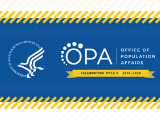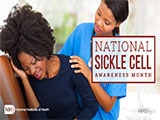Empowering Research Participants with Information
As a pediatric critical care specialist, I witnessed the impact novel treatments could have on the most vulnerable patients; they were often life-saving. None of these medical advances would be possible without people willing to volunteer to participate in medical research.
In just over 100 years, Americans' lifespan has increased by more than 32 years; advances in medicine and public health have been essential to this remarkable achievement. But these advances don't happen accidentally – they happen by careful scientific inquiry and clinical trials that rely on people volunteering to participate in these research studies. In the case of critically ill children, whom I cared for, we rely on the permission of parents so that the child becomes eligible to participate. But while research is essential, respect for patient autonomy and decision making, as well as the protection of the patients' safety, remains the priority. Nothing is more important than that.
One of our OASH offices, the Office for Human Research Protections (OHRP), has the mission of protecting the rights, welfare, and well-being of people who participate in research studies that HHS supports or conducts. So as not to have any conflict of interest, OHRP does not sponsor or conduct research like other offices and agencies and is located in my office, which is independent from the NIH and other research divisions. OHRP is dedicated solely to protecting research participants and promoting ethical research. OHRP works with research institutions to ensure appropriate review and oversight of research to protect research participants.
OHRP launched an initiative to empower members of the public, as potential research volunteers, by providing them with helpful information about health research and research participation. They developed a website, called About Research Participation, for this effort with the goal of promoting literacy in medical and health research and building public trust to promote the advancement of important medical and health research. The initiative supports HHS's goal to foster sound scientific advances.
About Research Participation provides engaging and understandable information to help people that are thinking about volunteering for a research study understand what research is and how participating in a study might affect them. All materials were developed from the perspective of potential research participants with a focus on providing the information they need, making it easily understandable, and prioritizing their interests so that they can make a meaningful decision about participation.
About Research Participation includes informational videos, infographics, a list of questions to ask researchers, and additional resources—and all the materials are available in both English and Spanish. The suite of short informational videos uses colorful and engaging images to provide helpful information about research and explain complex concepts such as randomization in clinical trials. Infographics explain how the federal regulations work to protect research participants. The list of questions to ask helps potential participants recall the questions they want to ask researchers in order to get all the information they need to decide whether to volunteer. There is a printable version they can take with them to meet the researchers. Finally, a collection of additional resources provides helpful information including a glossary of common research terms, links to relevant Federal websites, and related articles from the media.
All of these materials are available free of charge and no permission is needed for sharing and distribution. I encourage you to use and share these resources broadly. You can help get the information to people who need it and find it useful.
Empowering people to learn about research, understand what it means for them to participate, and make informed decisions about whether to do so is an important way for us to support research participants and promote public trust in the research enterprise.
Website Modernization Continues
The Best Valentine’s Day Gift: Saving a Heart


